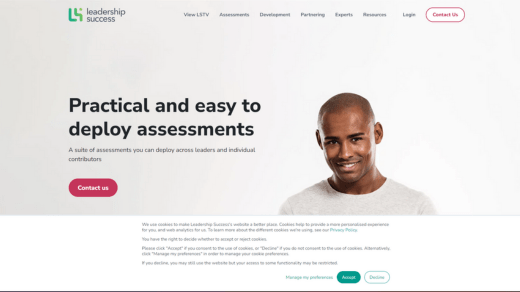Effective leadership is a cornerstone of organizational success, influencing team dynamics, productivity, and overall morale. Assessing leadership skills is a crucial process that allows individuals and organizations to identify strengths, areas for improvement, and strategies for personal and professional development. This article explores the key components of a leadership skills assessment, emphasizing the importance of self-awareness, interpersonal skills, and adaptability in leadership roles.
- Self-Awareness:
The foundation of effective leadership lies in self-awareness. Leaders who understand their strengths, weaknesses, values, and emotions are better equipped to make informed decisions and navigate challenges. Self-awareness involves recognizing one’s leadership style, communication preferences, and the impact of personal attitudes on team dynamics. Assessments such as personality tests, 360-degree feedback, and reflective exercises are valuable tools for individuals to gain insights into their leadership style. - Communication Skills:
Effective communication is a linchpin of successful leadership. Leaders must convey ideas clearly, listen actively, and foster open dialogue within their teams. A leadership skills assessment should evaluate an individual’s ability to articulate thoughts, provide constructive feedback, and adapt communication styles to different audiences. Assessments may include role-playing scenarios, communication feedback sessions, and evaluations of written and verbal communication skills. - Emotional Intelligence:
Leaders with high emotional intelligence can navigate interpersonal relationships, manage conflicts, and inspire team members. Assessments in this area explore an individual’s ability to recognize and understand emotions, both in themselves and others. Tools like the Emotional Intelligence Appraisal or self-assessment surveys help leaders gauge their emotional intelligence and identify areas for improvement. - Decision-Making and Problem-Solving:
Leaders often face complex decisions and challenges. Assessing decision-making and problem-solving skills involves evaluating an individual’s ability to analyze situations, weigh options, and make informed choices. Simulated scenarios, case studies, or real-life examples can be incorporated into assessments to measure a leader’s critical thinking and decision-making capabilities. - Adaptability and Change Management:
In today’s dynamic business environment, leaders must be adaptable and capable of managing change effectively. Assessments in this domain focus on an individual’s flexibility, willingness to embrace change, and ability to lead others through transitions. Leaders may be evaluated on their past experiences with change initiatives or assessed through hypothetical change scenarios. - Team Building and Collaboration:
Leadership is inherently collaborative, requiring the ability to build and lead high-performing teams. Assessments should delve into a leader’s approach to team building, delegation, and collaboration. Team feedback, peer reviews, and assessments of a leader’s ability to foster a positive team culture contribute to a comprehensive evaluation of team leadership skills. - Strategic Thinking:
Leaders need to think strategically to guide their organizations toward long-term success. Assessments in strategic thinking may involve analyzing a leader’s ability to set goals, develop plans, and align organizational objectives. Case studies, strategic visioning exercises, and discussions about market trends can be incorporated into the assessment process. - Ethical Leadership:
Ethical leadership is integral to building trust and maintaining integrity within an organization. Assessments in this area evaluate a leader’s commitment to ethical decision-making, transparency, and accountability. Ethical dilemma scenarios, interviews, and discussions about values contribute to the assessment of ethical leadership skills.
Conclusion:
A leadership skills assessment is a multifaceted process that goes beyond a simple checklist of traits. It involves a holistic evaluation of an individual’s self-awareness, interpersonal skills, decision-making abilities, adaptability, and more. Continuous assessment and feedback contribute to a leader’s ongoing development, fostering a culture of learning and improvement. As organizations recognize the importance of effective leadership, investing in comprehensive leadership skills assessments becomes a strategic imperative for individual and collective success.
Check out Leadership Success for more information.

